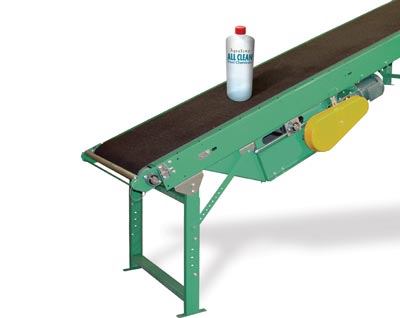After placing her order with a longtime vendor in May, Brenda Murr finally received her shipment of patio furniture in mid-July.
In previous years, the normal turnaround time for that supplier was approximately 15 working days, said the vice president of Mermaid Pool, Spa & Patio in Anderson, Ind.
The furniture industry was never known for its shipping expediency, but these days orders are simply taking too long, she said.
“It’s gotten to the point where I’m considering changing vendors,” Murr added. “Problem is, I don’t know if it’s going to be any better anywhere else.”
Longer lead times on outdoor furniture, much of which is shipped from overseas, is disheartening, but not wholly unexpected. However, what has caught retailers off-guard is the trend’s emergence into pool and spa supplies and equipment.
Brian Quint recently waited nearly two weeks for chemicals that used to arrive from his supplier in a matter of days.
“When that happens during the season, it’s just crazy,” said the president of Seattle-based retailer Aqua Quip. “And if you operate on a just-in-time inventory, it means you’re even more dependent on other players in the supply chain. If there’s a gap there, you’re toast.”
Quint now questions whether the industry has trimmed employees and inventories to the point where the market will be unable to effectively respond once there is an increase in demand.
However, many manufacturers believe this year reflects unique circumstances for the industry, and the problems won’t continue into the recovery.
The economic downturn coupled with bad weather across much of the country resulted in many retailers carrying excess inventory, said David O’Brien, national account manager at Haviland Consumer Products in Grand Rapids, Mich.
“What you saw were dealers and distributors not placing large orders on their early buys,” O’Brien explained. “Plus you had everyone who was dealing with bad debt — distributors and manufacturers — cutting down on their inventory.”
Then, when temperatures warmed up sooner than expected in 2010, the excess product that remained from the prior year was sold quickly, perhaps too quickly to be replenished in the most timely of fashions.
“I think that situation brought some of the industry’s weak points to the surface,” O’Brien added.
Longer lead times also may depend on the origin of the product, said Bill Churchman, CEO of Imperial Pools, a Latham, N.Y.-based distributor and manufacturer. Murr, for instance, recalled a grill manufacturer citing recent flooding in Mexico as cause for shipping delays. But in the United States, Churchman added, businesses industrywide have worked to rationalize their costs to meet current demand.
And his firm is certainly among those to reduce inventory, as well as personnel levels, in the past couple of years. For instance, Imperial did carry a lighter raw material inventory into 2010, Churchman said.
So while the ability to respond to a sudden uptick in demand may be a bit constrained at the moment, he believes it is not a long-term setback.
“Personally, I think this is temporary,” Churchman said. “It’s a natural part of the business cycle, but it will improve.”


